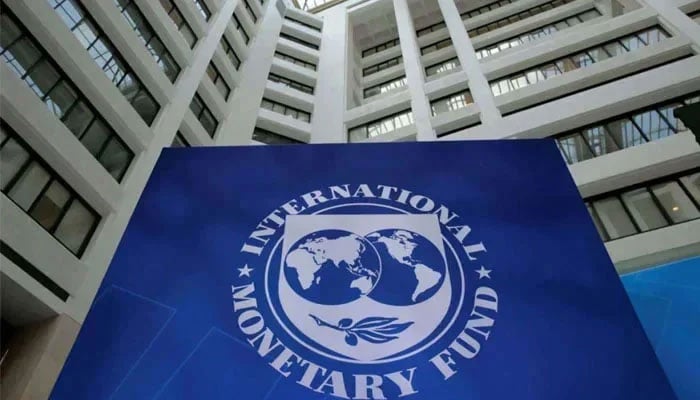Pakistan gets IMF board's nod for final $1.1 billion tranche
The development came after the IMF Executive Board's meeting held to review the release of funds
ISLAMABAD: In a most sought-after development, the International Monetary Fund (IMF) has okayed the third and final tranche of a $1.1 billion loan for Pakistan under the $3 billion Stand-By Arrangement (SBA), Geo News reported on Monday.
"The Executive Board of the International Monetary Fund (IMF) completed the second and final review of Pakistan’s economic reform program supported by the IMF’s Stand-By Arrangement (SBA)," the international lender said in an official statement issued on its website on Monday.
"The Board’s decision allows for an immediate disbursement of SDR 828 million (around $1.1 billion), bringing total disbursements under the arrangement to SDR 2.250 billion (about $3 billion)."
“Pakistan’s determined policy efforts under the 2023 Stand‑By Arrangement (SBA) have brought progress in restoring economic stability. Moderate growth has returned; external pressures have eased; and while still elevated, inflation has begun to decline. Given the significant challenges ahead, Pakistan should capitalize on this hard‑won stability, persevering—beyond the current arrangement—with sound macroeconomic policies and structural reforms to create stronger, inclusive, and sustainable growth. Continued external support will also be critical," said Antoinette Sayeh, Deputy Managing Director and Chair.
“The State Bank of Pakistan’s tight monetary policy stance remains appropriate until inflation returns to more moderate levels. Further improvements in the functioning of the foreign exchange (FX) market, together with a market‑determined exchange rate, will help buffer external shocks and attract financing, thereby supporting competitiveness and growth. The significant rebuilding of FX reserves under the SBA needs to continue. Moreover, stronger action to address undercapitalized financial institutions and, more broadly, vigilance over the financial sector are needed to ensure financial stability."
The development came after the IMF Executive Board's meeting reviewed the Pakistan's case for the release of funds under the current SBA that the country secured last summer to avert a sovereign default and which runs out this month.
A day earlier, Prime Minister Shehbaz Sharif met with IMF Managing Director Kristalina Georgieva in Riyadh, his first meeting with the IMF chief since his re-election. The premier discussed Pakistan entering into another IMF programme during the meeting.
It may be noted that the country is seeking a new long-term Extended Fund Facility (EFF) after a current $3 billion Stand-By Arrangement (SBA) expires this month.
According to The News, Pakistan has made a formal request to the IMF for seeking next bailout package ranging between $6 to $8 billion under the EFF with possibility of augmentation through climate financing.
However, the exact size and time frame will only be determined after evolving consensus on the major contours of the next programme in May 2024.
Pakistan has shown its interest and also made a request to dispatch the IMF review mission in May 2024 to firm up details of the next bailout package of three years period under EFF programme.
Finance Minister has said Islamabad could secure a staff-level agreement on the new programme by early July.
Islamabad says it is seeking a loan over at least three years to help achieve macroeconomic stability and execute long-overdue and painful structural reforms, though Aurangzeb has declined to detail what seize of programme the country seeks.
If secured, it would be Pakistan's 24th IMF bailout.
The $350 billion economy faces a chronic balance of payments crisis, with nearly $24 billion to repay in debt and interest over the next fiscal year — three-time more than its central bank's foreign currency reserves.
Ministry of Finance expects the economy to grow by 2.6% in the fiscal year ending in June, while average inflation for the year is projected to stand at 24%, down from 29.2% the previous fiscal year.
-
Bitwise Crypto Industry innovators ETF: What investors should do in 2026?
-
Nintendo shares slide again as momentum fears grow
-
Gold, silver prices fallen sharply; What’s driving the drop?
-
Gold’s record climb: Experts question if its safety is ‘overstated’
-
Dubai unveils plans to construct street built with real gold
-
Netflix slams Paramount’s bid: 'Doesn't pass sniff test’ as Warner battle escalates
-
Ubisoft: Shares plunge amid restructuring plan and wave of games cancellations
-
Netflix revises Warner Bros. deal to $83 billion: All-cash offer












